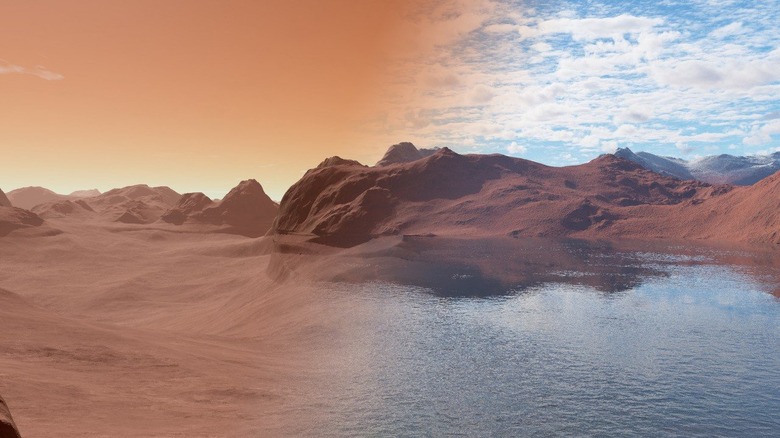Canadian Scientist Demands Protection For Historical Sites On Other Planets
For all the great things humans have accomplished on Earth — you know, civilization and all that stuff — we've still managed to kind of make a mess of things. We already know that mankind isn't very good at preserving what nature has already built, but we're also not great about preserving the history of our own achievements, especially if there aren't laws and guidelines in place to tell us how far is too far. Now, a Canadian scientist is suggesting that we take a proactive approach when it comes to preserving other worlds.
In a new paper published in Acta Astronautica, Jack Matthews of Memorial University of Newfoundland and Sean McMahon of the UK Center for Astrobiology ask for a universal agreement to be reached with regard to preserving both important natural and historical sites on other celestial bodies.
"A global agreement to protect the most important sites is needed before it's too late," Matthews said in an interview.
The two scientists explain that, thanks to the sharp increase in private space exploration and more countries aiming to travel the cosmos than ever before, other worlds are at risk of being utterly exploited before anyone has a chance to stop it.
"There lies the first footprints ever made by a human on another celestial body," Matthews said in regards to the footprints of the Apollo astronauts still sitting on the lunar surface. "That footprint still exists there because there is no atmosphere on the moon, therefore there isn't any wind. So that dusty footprint is still there, preserved on the surface of the moon."
But it's not just manmade historical sites that the two researchers believe should be protected. They also point out that certain geological features of Mars should see the same protection that we give important natural sites here on Earth. Valles Marineris, the "Grand Canyon of Mars," is one of the largest canyons in the entire Solar System, and the scientists argue that it should be treated as a historic natural monument.
Regardless of when or even if mankind manages to reach sites like this in person, Matthews and McMahon say that some kind of legal framework should arranged for their protection.
NASA already takes great care to preserve other worlds, avoiding even the slightest chance that other planets in the Solar System could possibly be contaminated with biological materials from Earth, but if humanity reaches a stage where terraforming a planet like Mars becomes a realistic option it would sure be nice to know that the planet won't be ravaged by our presence.
